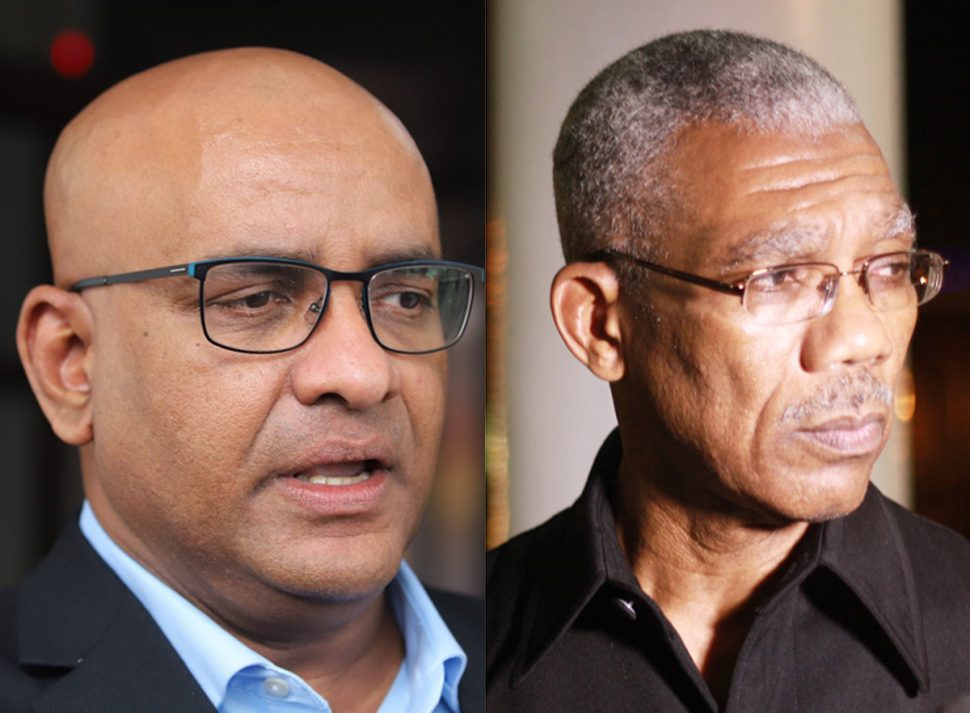Opposition Leader Bharrat Jagdeo yesterday requested the immediate resignation of the Cabinet, including President David Granger, in keeping with the constitutional provisions triggered by the passage of the no-confidence motion against government.
In a letter to Granger, dated yesterday and released to the media, Jagdeo also requested that he issue a proclamation dissolving Parliament and the setting of a date for the next general elections, albeit not beyond September 18th, 2019.
President Granger departed for Cuba yesterday for a scheduled medical evaluation.
The letter has come a week after the APNU+AFC government declared that Cabinet was continuing to function.
“The Government accepts that it is an ‘interim’ government but emphasises that Cabinet has not stopped functioning and government must continue to provide public services,” the Ministry of the Presidency said in a statement then.
However, Article 106 (6) of the Constitution requires Cabinet’s resignation, including that of the president, as was pointed out by the CCJ, which declared on July 12th that the December 21st, 2018 motion of no-confidence against the government was properly passed by the National Assembly and that the clear provisions of Article 106 immediately became engaged.
Article 106 (6) states, “The Cabinet including the President shall resign if the Government is defeated by the vote of a majority of all the elected members of the National Assembly on a vote of confidence.”
Article 106 (7) adds, “Notwithstanding its defeat, the Government shall remain in office and shall hold an election within three months, or such longer period as the National Assembly shall by resolution supported by not less than two-thirds of the votes of all the elected members of the National Assembly determine, and shall resign after the President takes the oath of office following the elections.”
In delivering the court’s judgment, CCJ President Justice Adrian Saunders had explained that Article 106 of the Constitution envisages that with its defeat on the no-confidence vote, the government is “on a different footing.”
“By convention, the government is expected to behave during this interim period as a caretaker and so restrain the exercise of its legal authority. It is this caretaker or interim role that explains the three month deadline, in the first instance, that the Article lays down, in principle, for the holding of the fresh elections,” he said.
Government has said it will restrain the exercise of its legal authority and will limit its activities to the routine management of the country.
It has also committed to addressing “urgent issues that are in public interest” and to consult with the opposition on matters which require the agreement of both sides.
The Ministry of the Presidency is still to explain its failure to adhere to the provisions of 106(6) but has maintained that an elections date cannot be set until a fully constituted Guyana Elections Commission (GECOM), which is now without a Chairperson, advises the President on its readiness to hold elections. The administration has also maintained the need for a national house-to-house registration exercise in order to ensure the production of a credible voters’ list for the next elections. GECOM yesterday began a house-to-house registration, while saying that preparations for elections are also underway.









